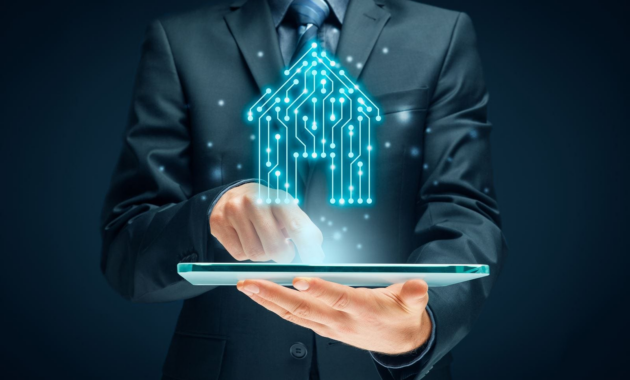PropTech: The Future of Property Technology in Real Estate
The real estate industry has always been a cornerstone of economic growth, but it has been slow to adopt new technologies compared to other sectors. However, in recent years, there has been a major shift. Property technology, commonly known as PropTech, is transforming the way real estate is bought, sold, managed, and developed. From enhancing the home buying experience to improving property management, PropTech is set to revolutionize the entire real estate landscape. In this blog, we’ll explore what PropTech is, its current applications, and how it will shape the future of the real estate industry.
What is PropTech?
PropTech refers to the use of technology to innovate and improve various aspects of the real estate industry, including property development, sales, management, and investment. It combines technologies such as Artificial Intelligence (AI), Blockchain, the Internet of Things (IoT), Virtual Reality (VR), Augmented Reality (AR), and Big Data to optimize real estate processes, reduce costs, and enhance customer experiences. The ultimate goal of PropTech is to make real estate more efficient, transparent, and accessible.
1. Automation in Property Management
Property management is one of the key areas where PropTech is making a significant impact. With the advent of automated systems, property managers can streamline their operations, offering a better experience for both tenants and landlords.
Smart Property Management Systems
Traditional property management involves dealing with an array of tasks such as collecting rents, scheduling maintenance, and managing tenant inquiries. PropTech solutions are automating these processes with cloud-based platforms that provide real-time data and analytics.
- Automated Rent Collection: Online payment systems allow tenants to pay their rent easily and securely. Automatic reminders can be sent to tenants, reducing late payments and simplifying accounting processes for property managers.
- Maintenance Management: PropTech tools can track maintenance issues and automatically schedule repairs based on the severity of the problem. This prevents delays and ensures that properties are well-maintained, which increases tenant satisfaction and retention.
- Tenant Communication: Communication between tenants and property managers can now be done through digital platforms. Tenants can report issues, ask questions, and request services all through a mobile app, making the entire process more convenient for both parties.
2. Virtual Tours and Augmented Reality (AR) for Property Viewings
The home-buying experience is one of the areas where PropTech is having the most profound effect. Traditionally, prospective buyers or tenants would need to schedule physical property tours to view homes. With the rise of Virtual Reality (VR) and Augmented Reality (AR), these tours are now being done online, which allows potential buyers or renters to view properties without stepping foot inside.
Virtual Reality and 3D Tours
Virtual reality and 3D modeling allow buyers to take immersive, interactive property tours from the comfort of their own homes. Prospective buyers can walk through properties and explore every room, all in great detail. This is especially beneficial for international buyers or those relocating from distant locations, as it eliminates the need for multiple visits to properties.
- Better Decision-Making: VR technology allows buyers to visualize the property in a way that photos or videos simply cannot. Some platforms even allow them to customize finishes or furniture to see how different design choices affect the space. This ability to personalize and virtually stage homes increases buyer confidence and reduces decision-making time.
Augmented Reality (AR) Enhancements
AR is also playing an increasing role in property viewings. Through AR apps, buyers can view a property’s features or imagine changes in real-time. For instance, they might visualize how different types of furniture will look in a space, or they could be shown a 3D model of a building superimposed over the actual site to see how it will look once completed.
3. Blockchain in Real Estate Transactions
Blockchain technology is another major player in the future of PropTech. This decentralized ledger system is revolutionizing how property transactions are conducted by improving transparency, reducing fraud, and speeding up the buying process.

Simplifying Property Transactions
One of the biggest challenges in real estate transactions is paperwork. The process is often slow, cumbersome, and prone to errors. With blockchain, property transactions can be digitized and recorded in an immutable ledger, reducing the time it takes to process deals.
- Smart Contracts: Blockchain allows for the creation of smart contracts—self-executing contracts where the terms of the agreement are written directly into code. Once conditions are met, such as a payment being made or documents being signed, the contract is automatically executed. This reduces the need for intermediaries and ensures faster, more secure transactions.
- Transparency and Security: Blockchain provides a transparent, tamper-proof record of property ownership. This eliminates the risk of fraud, as all transactions are verified and recorded on a public ledger. It also ensures that all parties involved have access to the same information, increasing trust in the process.
4. AI and Data-Driven Insights in Real Estate Investment
Artificial Intelligence (AI) is helping investors make more informed, data-driven decisions. By using AI-powered platforms, real estate investors can analyze large amounts of data to predict trends, evaluate potential investments, and minimize risks.
Predictive Analytics for Property Value Estimation
AI is enabling investors to better predict property values by analyzing historical data, market trends, and even social and economic indicators. This can help determine which properties will see an increase in value, providing investors with a competitive edge.
- Dynamic Pricing: AI can also be used to implement dynamic pricing models, allowing property owners to adjust rental prices based on demand and other market conditions. This helps maximize profits while remaining competitive in the market.
- Property Search Algorithms: AI-powered property search engines are also improving the way people search for homes. These platforms use machine learning to understand user preferences and recommend properties based on past searches, budget, and lifestyle preferences.
5. Smart Cities and IoT Integration
The concept of “smart cities” is increasingly being integrated into real estate development, with the Internet of Things (IoT) playing a significant role. IoT devices and sensors embedded in buildings and infrastructure are transforming cities into interconnected ecosystems that offer better living and working conditions for residents.
IoT in Residential and Commercial Buildings
In residential and commercial properties, IoT technology is being used to monitor and control various aspects of the building. From lighting and heating to security systems, IoT devices allow property managers and tenants to control and automate these functions remotely via smartphones or smart devices.
- Energy Management: IoT sensors can monitor energy consumption in real-time, allowing building managers to make adjustments to reduce waste. Smart thermostats, lighting, and climate control systems help cut down on energy consumption and lower operational costs.
- Security and Surveillance: IoT-based security systems use cameras, motion detectors, and facial recognition technology to provide better protection for properties. These systems offer real-time monitoring and immediate alerts if anything suspicious is detected.
6. The Future of PropTech: What’s Next?
As technology continues to evolve, PropTech will only become more embedded in the real estate industry. We can expect the following innovations to shape the future:
- AI-Driven Construction: Artificial intelligence will play an increasingly significant role in construction management, streamlining design and planning processes, and minimizing human error. AI can optimize construction timelines and resources, reducing costs and improving quality.
- Smart Home Integration: The future of residential real estate will likely see more homes equipped with smart home technology, making life more convenient and energy-efficient for homeowners. From voice-activated assistants to integrated home security systems, smart homes will become the norm.
- Sustainable Real Estate: As sustainability becomes a major focus in real estate, PropTech will help developers build more energy-efficient and eco-friendly properties. Technologies like solar power, geothermal energy, and water-saving systems will be essential for future buildings.
Conclusion
PropTech is changing the way real estate is developed, bought, sold, and managed. With the integration of advanced technologies like AI, blockchain, IoT, VR, and AR, real estate professionals are improving efficiencies, enhancing user experiences, and opening up new opportunities for innovation. As these technologies continue to evolve, they will transform the entire real estate industry, making it more transparent, accessible, and sustainable. Whether it’s streamlining property management, providing virtual tours, or optimizing real estate investments, PropTech is leading the way toward a more efficient and tech-driven real estate future.




